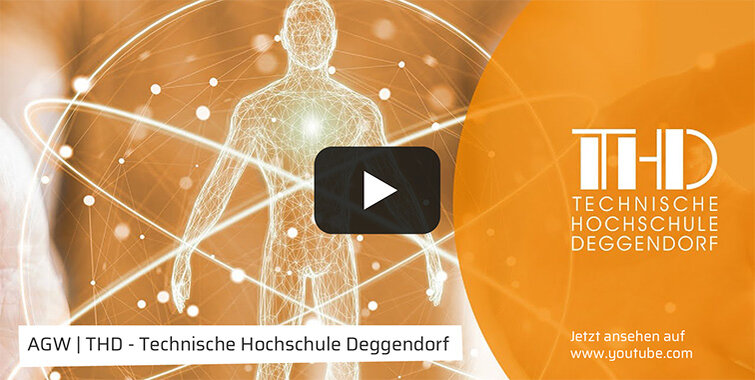shape our healthcare sector
become a future health pioneer
#count%
of all dit graduates
will find a job
within 2 months

your contribution to an inclusive society
#integration #inclusion #healthpromotion #dayplanning #lifedesign #management #team
#leadership #workwithdisabledpeople #workwithpeopleatriskofdisability
#companyhealthmanagement #disabilityrightscharter #federalparticipationact
Everyone has the right to participate in society. For many people, however, this participation is at risk. Due to disability, chronic illness or social disadvantage, they cannot participate as well themselves. In the worst case, they cannot be part of the modern social life. Recognising these disadvantages and counteracting them is the core competence of the Management of Inclusion and Participation degree programme. Together with others in the social and health care sector, you will acquire the skills to design integration and participation and to evaluate their success.
The special feature of the Management of Inclusion and Participation degree programme at DIT is the high proportion of social, health and medical science as well as educational expertise and the excellent networking with practice partners. The degree programme is unique because it is the first to address the challenges of the Federal Participation Act (BTHG). Graduates have a vision of a society in which all people can participate equally.
fact sheet management of inclusion and participation
Degree: Bachelor of Arts (B.A.)
Duration: 7 semesters (3.5 years)
ECTS points: 210
Start: October (winter semester)
Location: Deggendorf
Taught in: German (see language requirements)
Application period: 15 April - 15 September
Admission requirements:
- General German university entrance qualification, or please check your eligibilty at the DAAD if you own an international qualification, + training contract with one of the cooperating technical schools for curative education care
- Or a completed vocational training as curative education nurse/educator
- Or completed vocational training in nursing/ physiotherapy/ occupational therapy/ speech therapy + three years of professional experience
Postgraduate choices: degrees within the healthcare and management sector
Application: Information about the application process
Fees:
- No tuition fees, only student union fee
- International students from non-EU/EEA countries are required to pay service fees for each semester. Click here to read about our service fees.
General enquiries about studying at DIT: welcome@th-deg.de | prospective student advisors
career prospects
As a manager of inclusion and participation, you create the framework to enable disadvantaged people to participate in society. You support them in all areas of life and in everything they cannot do on their own. People like you help them to organise their lives independently - so that they can live together with others or integrate into the labour market.
You can promote an inclusive society in different functions:
- As a manager of institutions, homes or individual teams,
- As a counsellor for people and families concerned,
- Through management and organisational activities.
Institutions where you can take on these tasks are:
- Residential facilities for people of all ages
- Day care facilities for children, young people, adults and senior citizens
- Institutions for participation in working life, e.g. workshops, vocational training centres
- Communal and socio-spatial facilities, e.g. counselling centres, community centres.
You will fulfil all these tasks with a high level of social and communicative competence. Personal qualities that will help you: You are empathetic, can organise well, work in a team and network. If you are also creative, open-minded and think in business terms, you are ideally equipped for all tasks.
cooperating technical schools for curative education
- Fachschule für Heilerziehungspflege, Johannes - Grande - Schule der Barmherzigen Brüder gemeinnützige Behindertenhilfe GmbH
Äußere Passauer Straße 60, 94315 Straubing
- KWA Bildungszentrum
Gartlbergstraße 4, 84347 Pfarrkirchen
- Fachschule für Heilerziehungspflege - Altenhohenau
Altenhohenau 14, 83556 Griesstätt bei Wasserburg
- Fachschule für Heilerziehungspflege und Heilerziehungspflegehilfe
Liselotte-von-Lepel-Gnitz-Schule - Diakonie Herzogsägmühle, Dorfplatz 5, 86971 Peiting - Herzogsägmühle
- Fachschule für Heilerziehungspflege und Heilerziehungspflegehilfe
Passau bfz gGmbH, Bahnhofstraße 27, 94032 Passau
- Bildungszentrum für soziale Berufe, Stiftung Sankt Johannes
Bahnhofstraße 107b, Neuburg an der Donau
- Akademie Schönbrunn – Fachschulen für Heilerziehungspflege und Heilerziehungspflegehilfe
Gut Häusern 1, 85229 Markt Indersdorf / Mitterfeldstraße 20, 80689 München
If the school of your choice is not on this list, please contact us via e-mail at praxisreferat-agw@th-deg.de. We will be happy to check the possibilities of cooperation with the school of your choice.
subject overview
Overview of lectures and courses, SWS (Semesterwochenstunden = weekly hours/semester) and ECTS (European Credit Transfer and Accumulation System) in the Bachelor's degree Management of Inclusion and Participation.
The practical modules are completed at the Fachschule für Heilerziehungspflege, the remaining lectures take place at DIT
| 1. Semester | SWS | ECTS |
| Scientific Work | 3 | 5 |
| Social Contacts & Relationships* | 3 | 5 |
| Professional Self-Concept* | 5 | 10 |
| Practice 1* | 2 | 10 |
| 2. Semester | ||
| Theories and Models of Inclusion and Participation | 3 | 5 |
| General Business Administration | 3 | 5 |
| Individuals and Needs* | 5 | 10 |
| Practice 2* | 2 | 10 |
| 3. Semester | ||
| Disability Studies | 3 | 5 |
| Legal Foundations | 3 | 5 |
| People in Selected Living and Learning Situations* | 5 | 10 |
| Practice 3* | 2 | 10 |
| 4. Semester | ||
| Ethical Foundations | 3 | 5 |
| Spaces of Action in Life-World Contexts* | 5 | 10 |
| Work Organisation* | 5 | 10 |
| Social Processes and Communication* | 3 | 5 |
| Areas of competence: Management, Science & Research, Inclusion and Participation, Reference Sciences | ||
| 5. Semester | ||
| Social Space and Community Orientation | 4 | 6 |
| Quantitative and Qualitative Research Methods | 4 | 6 |
| BTHG 1: The BTHG as a Basis for Action | 4 | 6 |
| Mental and Cognitive Processes - Learning to Understand People | 4 | 6 |
| 6. Semester | ||
| Corporate Management | 4 | 6 |
| Specific Ethical Issues | 3 | 6 |
| Evidence-Based Work and Practice Development | 4 | 6 |
| BTHG 2: Designing the Rehabilitation Process | 4 | 6 |
| Systemic Communication | 4 | 6 |
| 7. Semester | ||
| Bachelor's Seminar / Colloquium | 10 | |
| Value-Based Leadership and Leadership Action | 4 | 5 |
| Project Management: The Rehabilitation Process in Case Studies | 4 | 5 |
| Inter-Agency Network Development | 4 | 5 |
| Counselling and Guidance for Social Participation | 4 | 5 |
| BTHG 2: Designing the Rehabilitation Process | 4 | 6 |
| Systemic Communication | 4 | 6 |
* With already completed training, the practice modules of the specialist schools of curative education are recognised.




